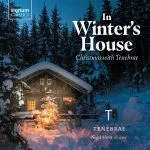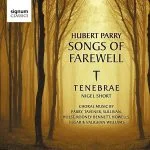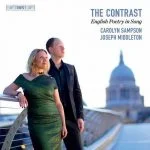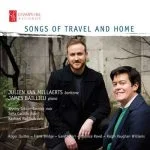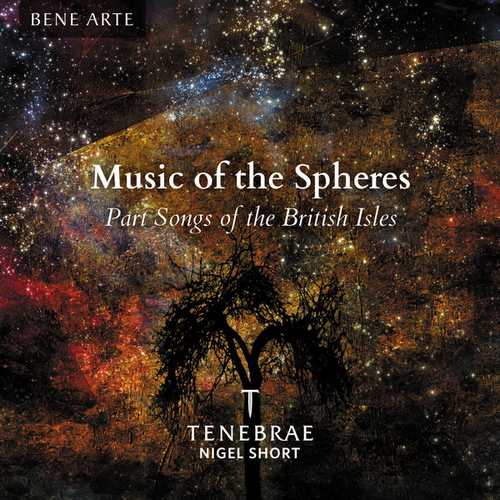

Composer: Judith Bingham, Frank Bridge, Robert Chilcott, Edward William Elgar, Jonathan Dean Harvey, Herbert Henry John Murrill, Charles Villiers Stanford, Ralph Vaughan Williams, Ernest Walker
Performer: Tenebrae
Conductor: Nigel Short
Format: FLAC (tracks)
Label: Signum
Catalogue: SIGCD904
Release: 2016
Size: 1.09 GB
Recovery: +3%
Scan: yes
Murrill: Two Songs from Shakespeare’s Twelfth Night
01. No. 1, O Mistress Mine
02. No. 2, Come Away, Death
03. Bridge: Autumn, H.24
04. Bridge: Music When Soft Voices Die, H.31
05. Bridge: The Bee, H.110
Vaughan Williams: Three Shakespeare Songs
06. No. 1, Full Fathom Five
07. No. 2, The Cloud-Capp’d Towers
08. No. 3, Over Hill, Over Dale
Elgar: Four Part-Songs, Op. 54
09. No. 1, There is Sweet Music
10. No. 2, Deep in My Soul
11. No. 3, O Wild, West Wind
12. No. 4, Owls
13. Walker: Soft Music, Op. 48
14. Bingham: The Drowned Lovers
15. Stanford: 8 Part-Songs, Op.119: No. 3, The Blue Bird
16. Stanford: On Time
17. Harvey: Song of June
Chilcott: The Modern Man I Sing
18. No. 1, The Runner
19. No. 2, The Last Invocation
20. No. 3, One’s-Self I Sing
The part song is a largely British form consisting of a four-part choral setting of a secular poem, generally with the melody in the top line. It grew out of semi-professional genres such as the glee, and over time, in the hands of major composers, it took on contrapuntal trappings and greater expressive ambitions, but it never lost its basic orientation toward clear, homophonic text settings. This collection by the fine English choir Tenebrae under director Nigel Short would make a good introduction to the genre, but will also attract those who have a few albums’ worth of part songs in their collections, with some standard works interspersed with real finds from Short. Shakespeare’s song texts have an ongoing association with the part song, and there are familiar (Vaughan Williams) and novel (Herbert Murrill) settings here. Other works draw on the lyric poetry of Tennyson, Shelley, and the other 19th century lyric poets who populate the genre, with the contemporary composer Bob Chilcott, whose settings tend toward radiant simplicity, being the only one to take American texts, by Walt Whitman, as source material. The songs range from the early 20th century to the early 21st, and an interesting feature of the tradition is its discrete quality, with composers responding to earlier works. The Drowned Lovers, by Judith Bingham, for instance, was conceived as a prelude to Charlies Villiers Stanford’s The Blue Bird, Op. 119. The latter, an almost static work featuring one of Stanford’s most striking harmonic experiments, should be sampled on several counts: it represents the considerable technical demands the part song has at times made on performers, the full adequacy of Tenebrae in meeting those demands, and most importantly, the sheer beauty of which the genre is capable. Many of these pieces have more in common with art song than with larger choral genres. Strong sound and text intelligibility from London’s acoustically superb All Hallows Church add to the appeal.
